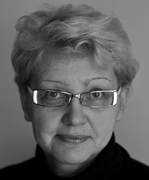Humans and Health
The data in the World Factbook on the life expectancy in Estonia in 2012 show that among 222 countries, we rank 117th. The average life expectancy of the people of Estonia born in 2012 is 73.58 years: 68.3 years for men and 79.19 years for women. Life expectancy can be longer only when people are healthy. Thus, it can be said that in 116 countries health is supported more and damaged less than in Estonia, because there is no reason to presume that the genetic material of the people living in our country does not enable us to live as long as the people in Scandinavian countries or the Netherlands. Long life is an issue of making certain choices.
The health policy of each country depends on how the makers of political decisions understand the importance of health and the factors influencing health. In the countries where people have long healthy life, the political decision-makers proceed from the knowledge that the money put in preserving health and preventing diseases is a profitable investment in the future for a country.
Although the definition of health according to the World Health Organisation as „a state of complete physical, mental, and social well-being” is in its essence a description of an ideal that can hardly be met in real life, the factors that endanger health are real and the skill of dealing with them determines both the quality of life and life span. We need our own health care system that would meet our requirements and take into account our needs and our possibilities, relying on common sense. When we look for cheap solutions for providing health care services, they might turn out not to be so cheap in long-term perspective. Copying an activity that has been successful in some other country may not be as successful in our living environment. In conclusion it can be said that our health depends more on political decision-makers and us ourselves than on doctors. We need the skill to live with dignity and to give others the possibility to preserve their dignity; each person should have at least one person who loves him or her unconditionally, and also feeling of security when looking into the future. Naturally the availability and quality of medical care, knowledge about and possibilities for preventing diseases are also important factors having an impact on health.
